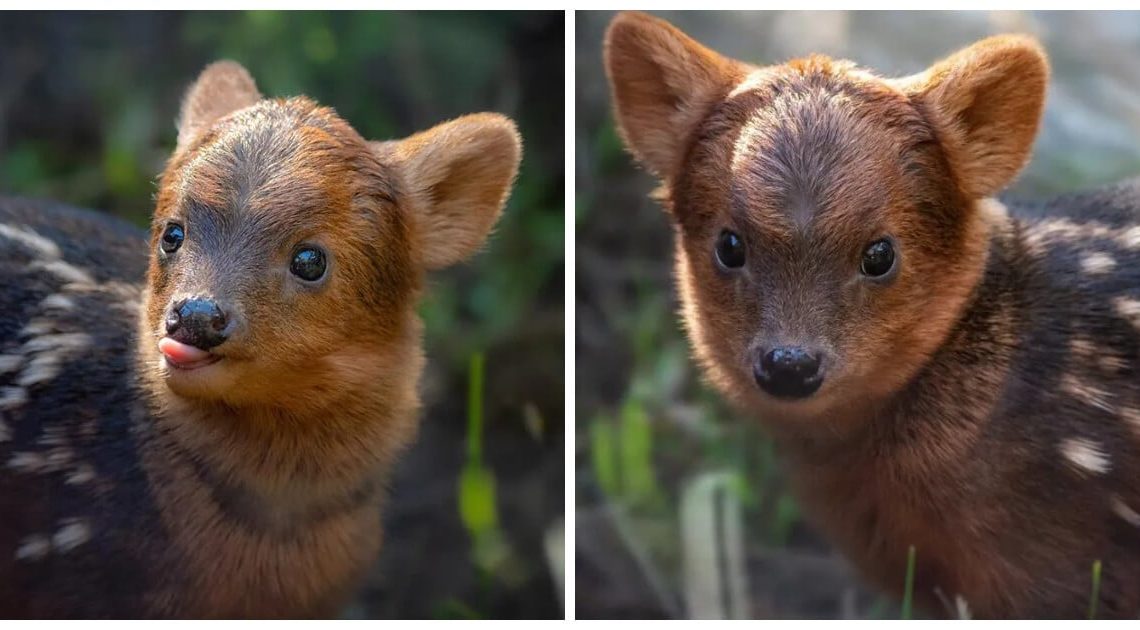These adorable creatures have the title magical deer for a reason. They are so gorgeous and heart-melting that no animal lovers can resist. Let’s meet the shy and gentle pudus – the smallest deers in the world and learn a few interesting facts about them!
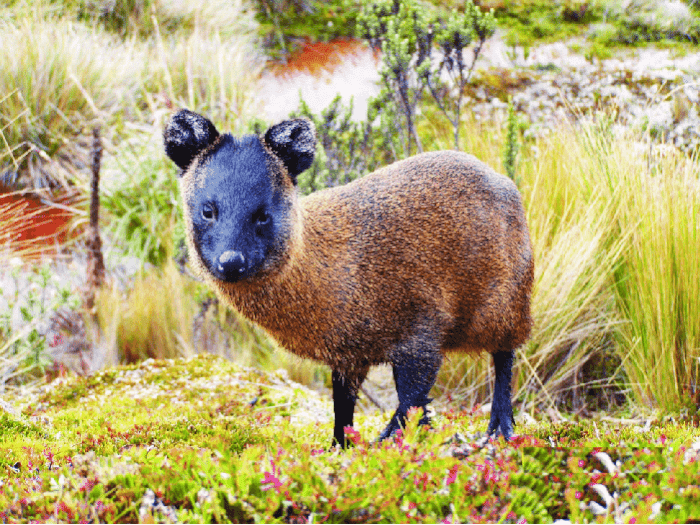
The pudus are two species of South American deer: the northern pudu (Pudu mephistophiles) from Venezuela, Colombia, Ecuador, and Peru, and the southern pudu (Pudu puda) from Chile and southwestern Argentina. The southern one looks like a minimum-sized mountain goat, and the northern coat tends to be lighter than the southern one.
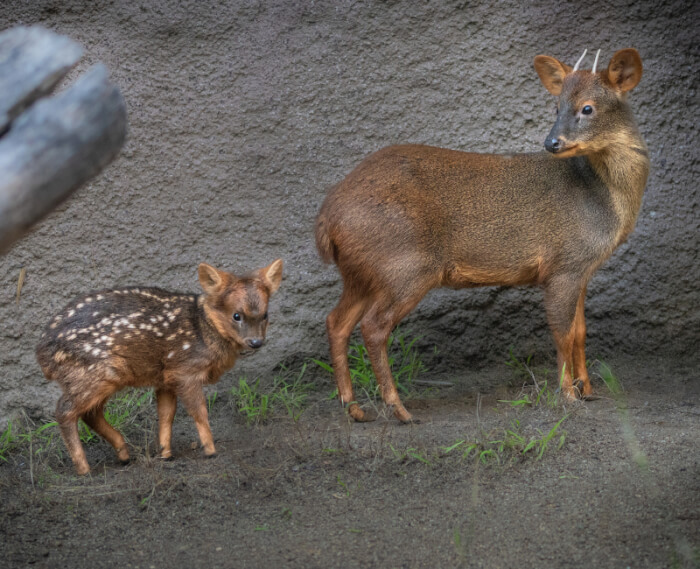
Each full-grown-up pudu is as big as a medium-sized canine. It measures from 32 to 44 centimeters (13 to 17 in) tall and up to 85 centimeters (33 in) long and weighs from 3.3 to 13.4 kg (7.3 to 30 lb).
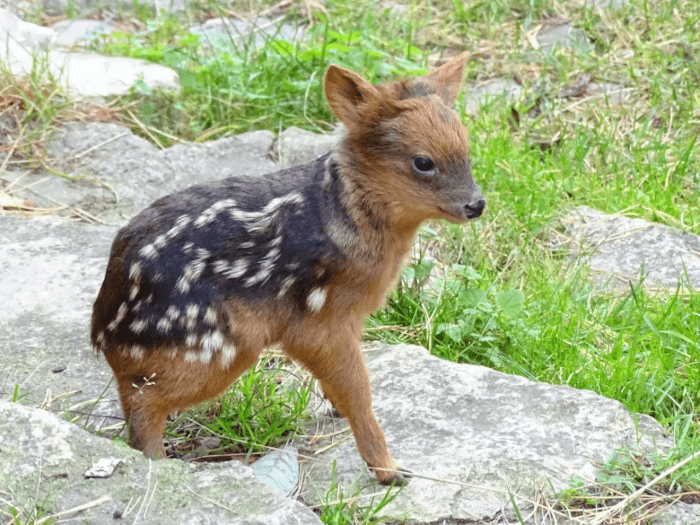
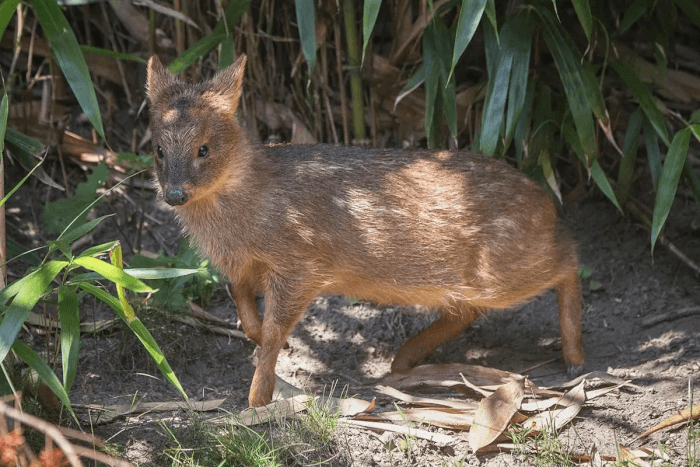
These cute tiny deers are herbivores. Their meals are vines, leaves from low trees, shrubs, succulent sprouts, herbs, ferns, blossoms, buds, tree bark, and fallen fruit. Besides, they can survive without drinking water for long periods due to the high water content of the succulent foliage in their diets. Also, pudus are the only deer species that can climb trees. However, they don’t often do it but just in some necessary cases.
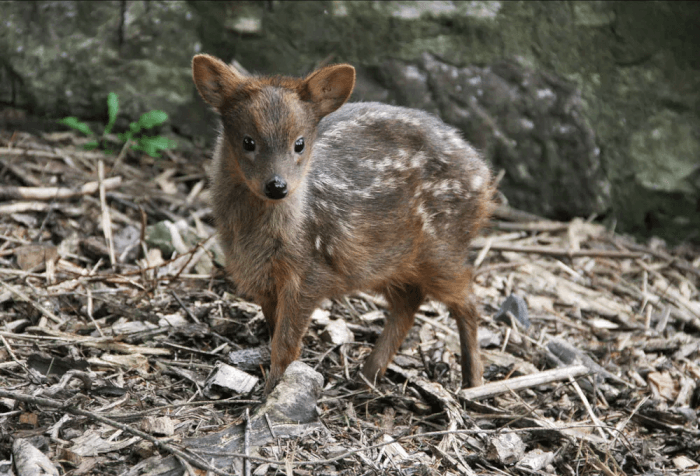
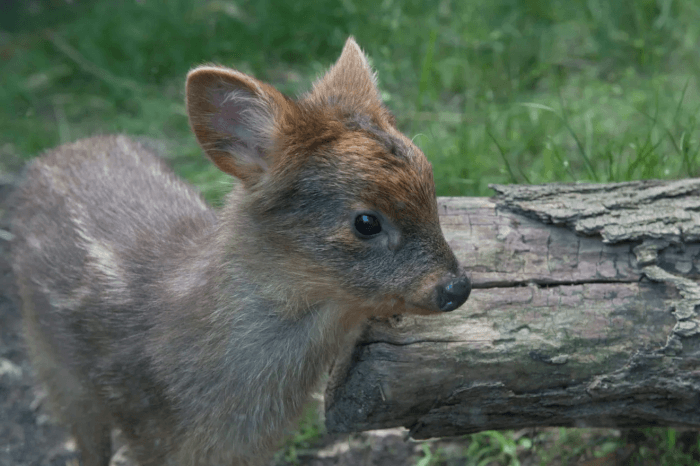
Since they are not strong, large, and fast enough to fight or run away from predators, they inhabit temperate rainforests where the dense underbrush and bamboo thickets hide and protect them from carnivores. Moreover, these smart little guys toughen the hunting by running in confusing zig-zag. Plus, they are always on high alert and pretty hard to catch.
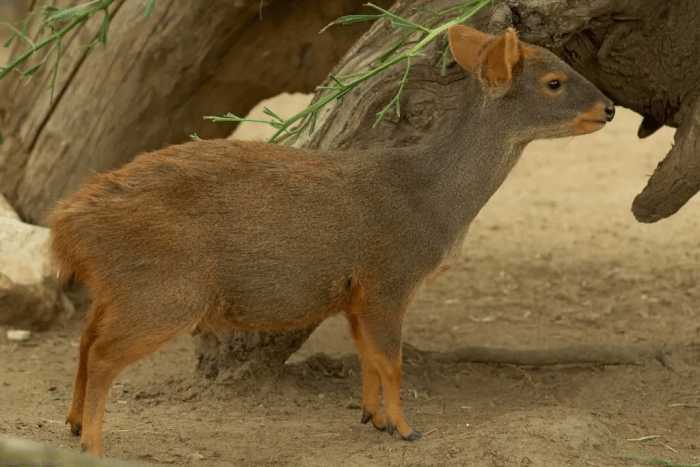
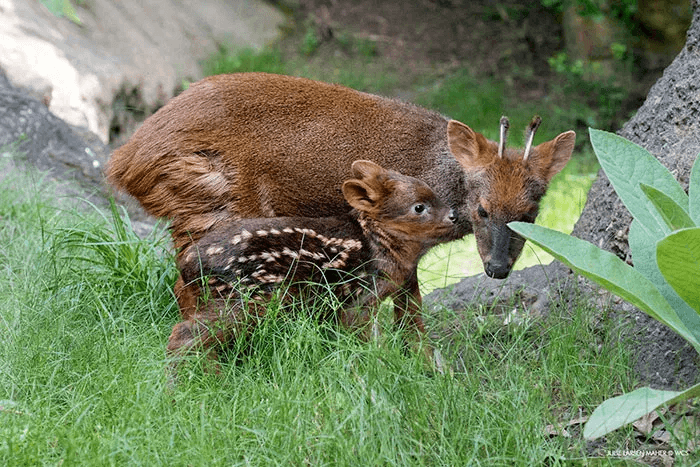
Despite their cuteness, pudus are solitary and only come together for the rut. Mating season is in the Southern Hemisphere autumn, from April to May. The gestation period ranges from 202 to 223 days (around seven months). Then, a single offspring, or sometimes twins, will be born in austral spring, from November to January.
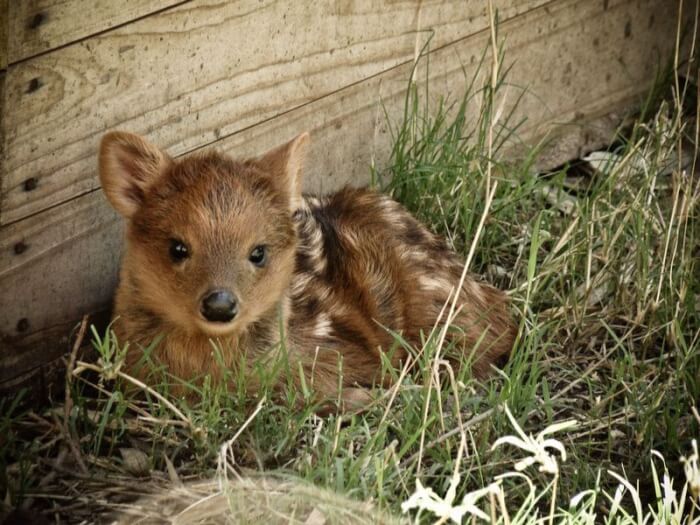
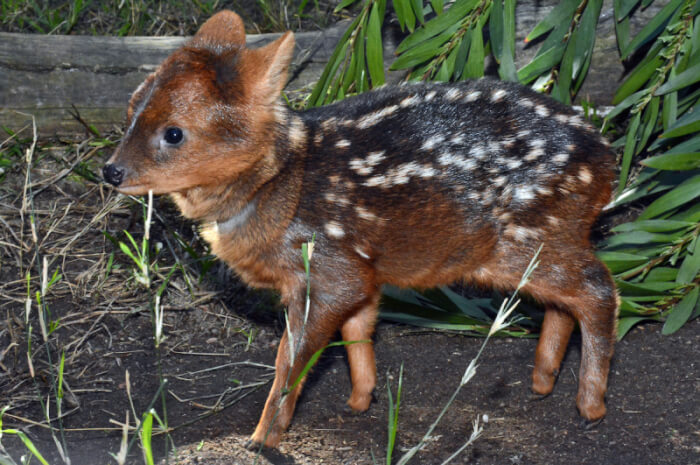
Due to the destruction of their rainforest habitat and overhunting, these lovely friends are listed as near threatened on the IUCN Red List. If you fall for their gorgeousness, hit the like-share button and expose your feeling in the comment box below! Besides, we still have a lot more gripping articles waiting for you to read.
